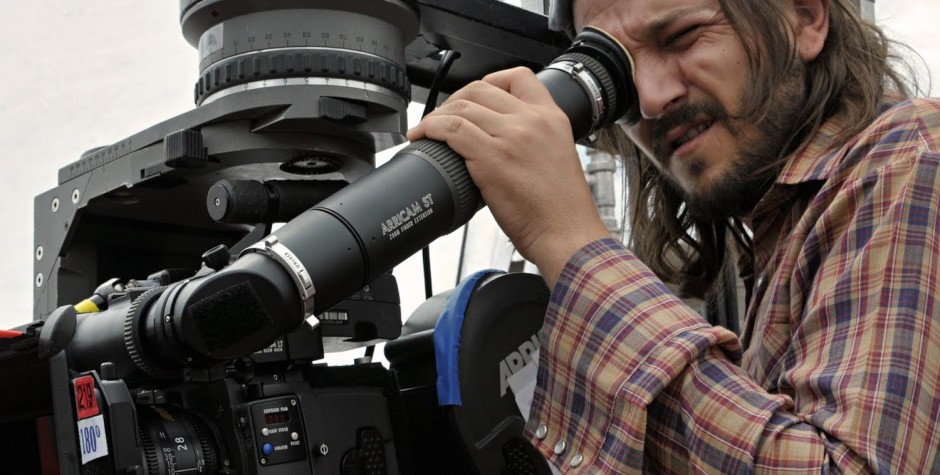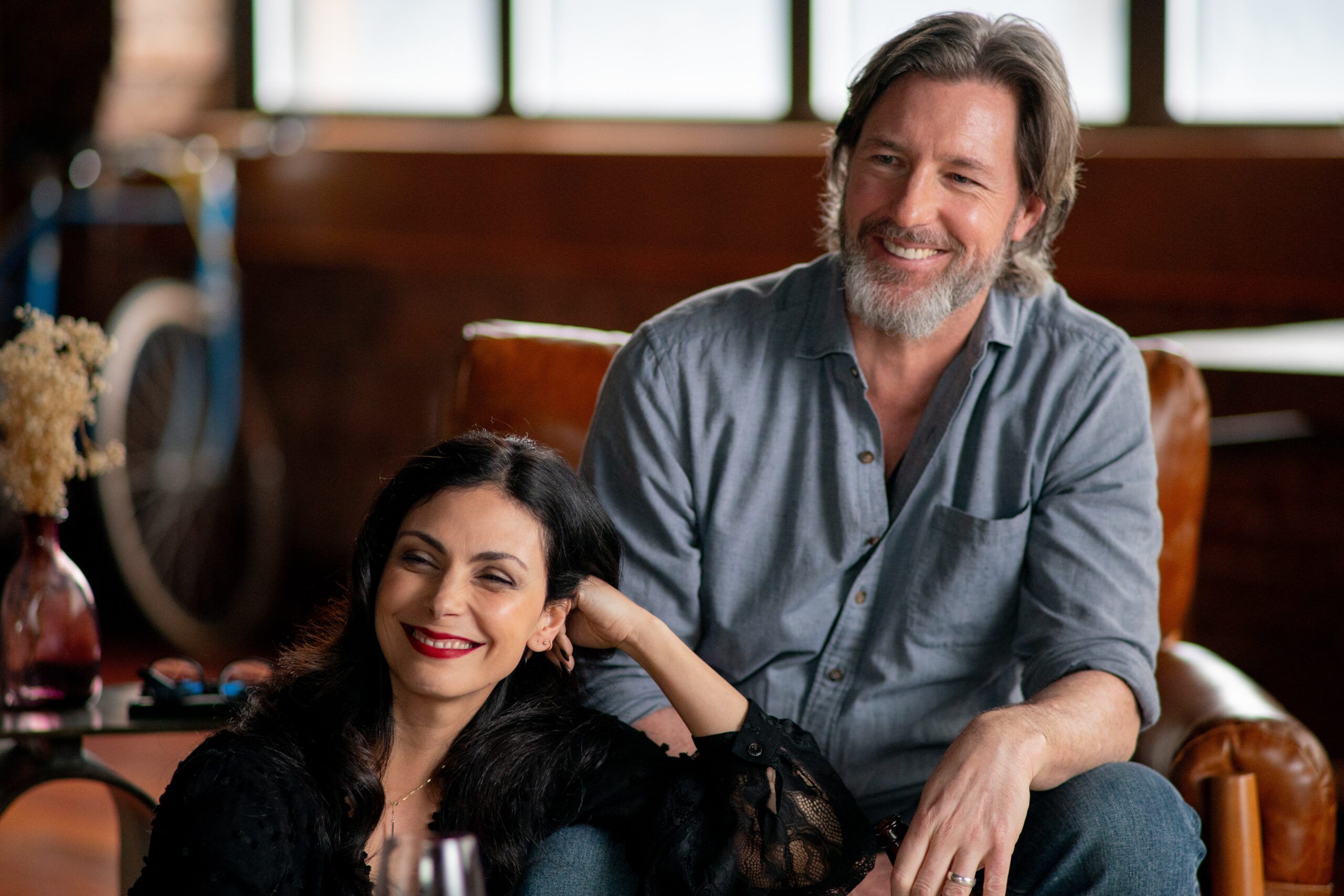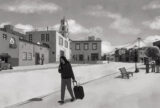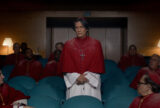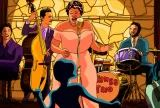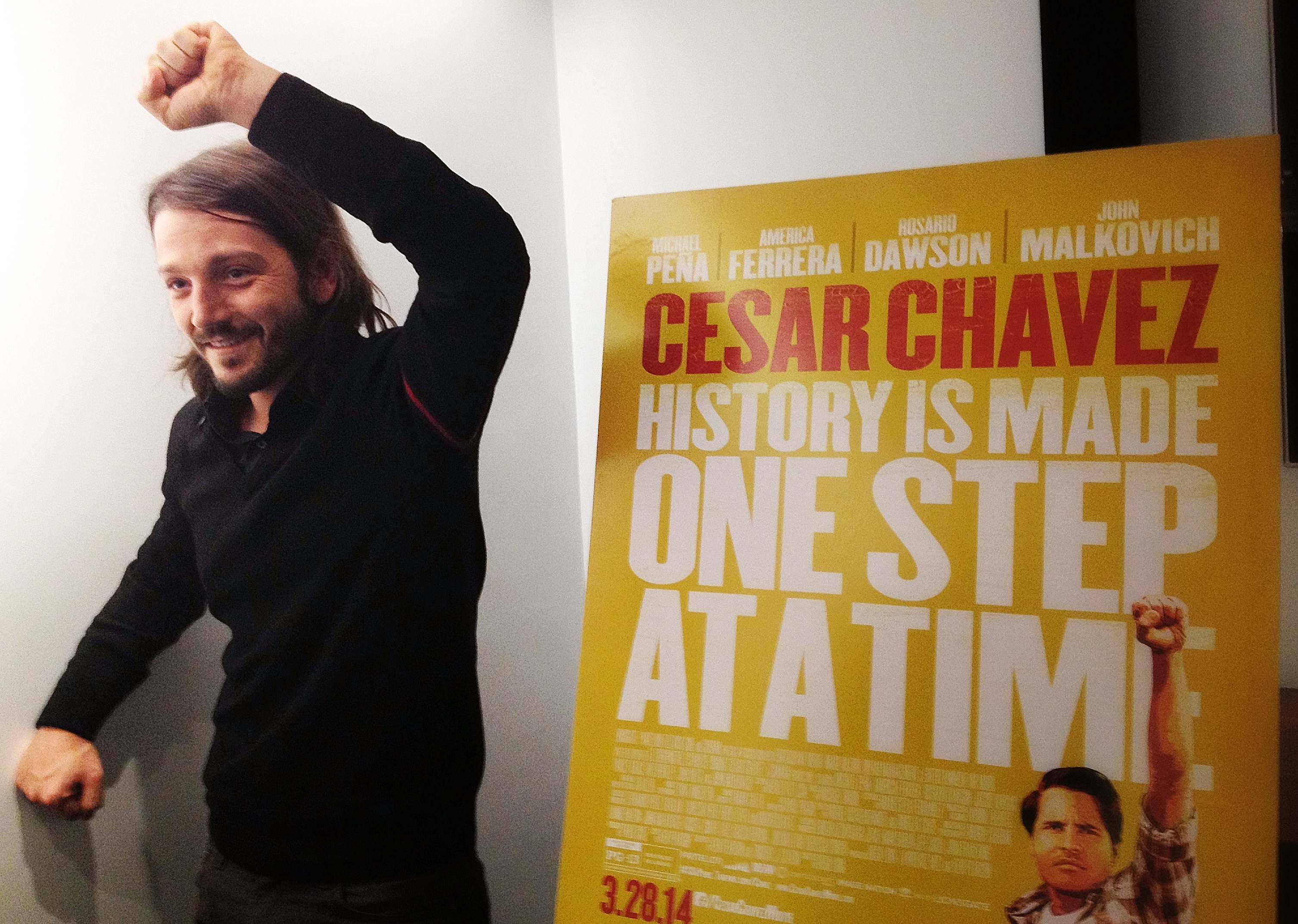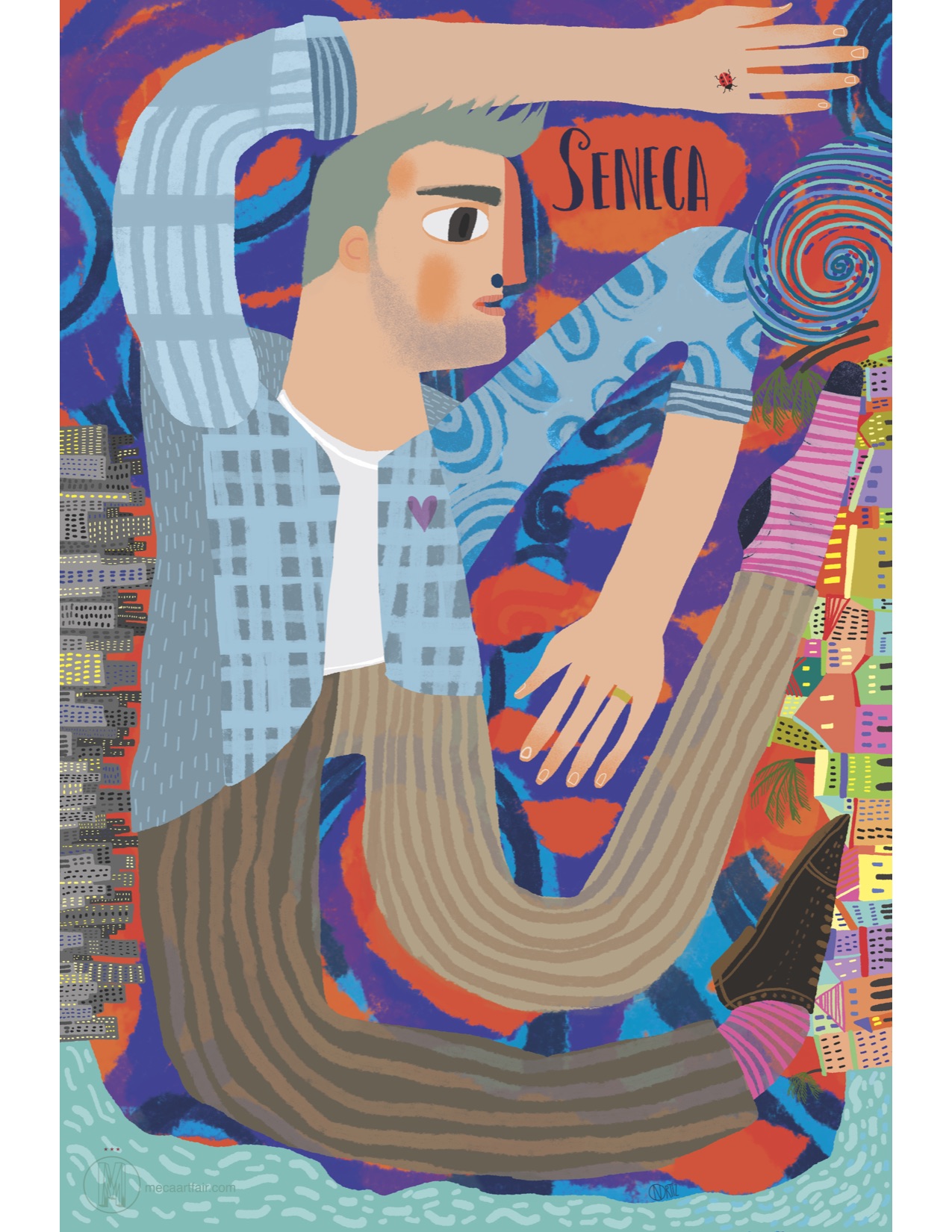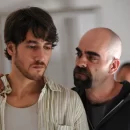03.25.2014 | By Mariana Dussan |
*Updated November 2025
This week at a roundtable, I had the opportunity to chat with Diego Luna, director of the upcoming film Cesar Chavez. During the half hour-long segment the passionate Luna shared details of his four-and-a-half-year journey and the obstacles he had to overcome in order to bring the story of a nearly forgotten Mexican leader, Cesar Chavez, to fruition.
Mariana Dussan (MD): Why did you feel the need to do this film?
Diego Luna (DL): My son was born here in the United States, he’s a Mexican American he got an American passport before the Mexican one in fact. In a way, this was a personal attempt to tell a story that he would be able to use to find out where he comes from and what needed to happen for him to be where he is at the moment.
(MD): Did you know how long it was going to take you to do this film?
(DL): No, I would have thought about it probably twice. At the beginning, I didn’t know I had to do it so I would have quit if they’d told me this is going to be four and half years of your life. When I started I thought: “Wow! It’s amazing that there’s no film about Cesar Chavez, but this is so powerful and it comes so in time for many reasons in this community … everyone is going to want to do this film.” And I went out shopping like they do in films, they go to studios and sit down with executives, and everyone gave us a chance to sit down, which sounded like ok it’s happening and then they said: “We love [that] you’re doing this, we’re not going to join, but once you have a film come and show it to us and probably we’ll be part of it.” But we would [say]: “No, we need the money to do it.”
(MD): What were some of the reasons they wouldn’t finance it, and how did you end up getting the money?
(DL): I heard things like: “Can you make it more sexy?” How can I make it sexy? If it were sexy, probably farm workers would be living a different reality. Then they said: “Well what about A-list actors, can you have Antonio Banderas or Javier Bardem [playing Cesar Chavez]?” The man existed, there’s pictures, there’s murals, you cannot just say well now he’s going to look like something else. This is about a Mexican American, a guy that was born in Arizona.
We found no support in this country, but by that point I promised the family that I was going to deliver a film, I also invested a year of my life working on the script with Keir Pearson so I said to Pablo Cruz, my partner: “Let’s go to Mexico and finance it the way we do film.” We went back to Mexico and in a week and a half we had at least 70 percent, which allowed us to come back for the other 30. Then when we came back, we found the perfect partners which are Participant Media and Pantalion Films, both different film [companies], but both do films that would be perfect for this market that we are trying to prove exists.
(MD): There is a generation of people that are unaware of who Cesar Chavez is, do you have a plan of action in terms of having this exposed in more of a movement of people opening up their minds rather than just having them watch a film and be entertained?
(DL): Definitely, and we are focusing a lot on kids. Before promotions started we did two weeks of going to high schools and universities … We’ve been pushing to do tons of little videos to bring awareness on who Cesar Chavez was and what the movement stands for, on social media. Also, as part of the film we are making a petition to president Obama to make a Cesar Chavez National Day of Service. There’s a page called takepart.com/chavez, we need 100 thousand signatures to go to Obama.
The film should be the beginning of something bigger, the film should trigger, hopefully, curiosity in people to try to go and find out exactly what this movement was about. It’s difficult to inform in an hour and 45 minutes and still entertain, about everything they did and bout the relevance and how pertinent it’s to talk about this.
(MD): Was it hard for Michael Peña to carry such an important role?
(DL): Rosario told me: “It is unbelievable how much Michael changed for this role he’s nothing close to what he portrayed here.” I always told him: “Michael, we have to be aware, we cannot do the Hollywood way.” We cannot say suddenly that Cesar was a great speaker and the Martin Luther King kind of leader because he wasn’t. He was very humble, very timid [and] as a result of the change he wanted to happen he had to become the leader, but if he would have had a chance to step back he would have done it. He was a great listener and to me that’s why he could organize these people because he came and took the time to listen to everyone’s story. This is a community that had been ignored for so long then suddenly someone arrived and cared about their story.
(MD): What else did you learn about Cesar Chavez?
(DL): Marc Grossman, who traveled a lot to rallies with him, he was his PR person and wrote the speeches for Cesar, he was very close to him and we worked a lot with him, and he told me: “In the rallies it was painful because he would stay till 9, 10 p.m., people left and he was still talking to a woman in the back.” He had time, he had nothing else to do but this and everyone realized that he was giving his life. This is a man … that was living in the city [and] changed his life, he wore a suit, he had a job, and he said: “No we have to go back to the fields and change things from the inside, change is not going to come from the outside,” and he went back and sacrificed not only his reality, but the reality of his family.
(MD): Why did you decide to start the film so late in his life and not with his childhood?
(DL): The first script I got was from the day he was born till the day he died, you can do that with a fictional film, it doesn’t matter, but with the life of someone I think that’s very unfair. It’s impossible in an hour and 45 minutes to tell the journey of 64 years of someone, so I thought: “I’m going to concentrate on one achievement,” and to me that’s the boycott. If I can explain how the boycott happened, and why the boycott happened, and what [it brought] to this community I’ll be sending the right message. I didn’t want to do a film about this community I wanted to do a film about how this community managed to connect with the rest of the country. The powerful message here is that if change ever comes is because we get involved and we people connect with others.
It’s the first film done about Cesar and the movement and it’s very unfair to ask one film to fill the gap of so many years of no film talking about it. Hopefully it will bring curiosity and awareness and people will go and investigate a little more on who [him and his partners] are.
(MD): How many of the actors and crew were unionized?
(DL): In terms of the union, there’s no way to do a film this big in Mexico non-union. Every actor was paid through SAG and also, we have a union in Mexico of actors, technicians and everything, so everything was union. It would be very stupid to do a film about a union without the support of unions.
But you know what happened – which is probably where this question is coming from – there was a whole debate on the extras, and the extras were farm workers. That doesn’t mean that they didn’t get paid, but the point is that I wanted to work with real farm workers. There’s no way to put makeup on a face and make it look like they’ve been under the sun for so many years under that condition of dust and wind. Those faces tell you the story just by looking at the face you get many things that cannot be said in dialogue.
(MD): What did you take away from the farmers?
(DL): The only thing is that they reminded me every day why the film needed to be done. It just still makes no sense to me that those who are feeding this country can barely feed their families and by listening to their stories, I got the necessary energy to keep going.
(MD): How do you think this film challenges society’s view of Latinos and the issues we go through?
(DL): I think there’s something that has to happen before, which is us Latinos we have to learn from [Cesar Chavez] that if we organize, we have the strength to change the world … because I don’t think we have been so well organized since then. Yes, there are a lot of complaints we have about this country as a community, but I would start by looking at ourselves in the mirror and asking what haven’t we done? We have a chance to send a message the 28th of March, that we want those films out, we want our stories to be represented, and we want our heroes to be celebrated in film … Cesar said and showed us that our strength isn’t in our numbers that numbers are just growing, so I don’t know why we as a community haven’t experienced that feeling of power that we actually have.
For more movie interviews, check out our ShowBizCafe interviews archive.

